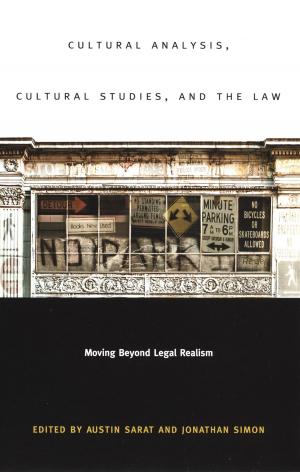The Limits of Ferocity
Sexual Aggression and Modern Literary Rebellion
Fiction & Literature, Literary Theory & Criticism, American, Theory| Author: | Daniel Fuchs | ISBN: | 9780822394112 |
| Publisher: | Duke University Press | Publication: | May 30, 2011 |
| Imprint: | Duke University Press Books | Language: | English |
| Author: | Daniel Fuchs |
| ISBN: | 9780822394112 |
| Publisher: | Duke University Press |
| Publication: | May 30, 2011 |
| Imprint: | Duke University Press Books |
| Language: | English |
The Limits of Ferocity is a powerful critique of the culture of extremity represented in the works of D. H. Lawrence, Georges Bataille, Henry Miller, and Norman Mailer. Daniel Fuchs provides close readings of their literary and intellectual texts, which convey a loathing of middle-class culture or, as the case may be, society itself, in favor of a rebellion often expressed as an aggressive, even apocalyptic, sexuality. The Marquis de Sade is the precursor of this literature, which idealizes the self that violates taboos and laws in the search for erotic transcendence. Fuchs shows as well how these writers reflected and contributed to a broader cultural assault on liberal moderation and Freudian humanism. He explains Freud’s theories of culture and sexual aggression and describes how they were rejected or reworked, sometimes in favor of a liberating violence, by theorists including Wilhelm Reich, Norman O. Brown, and Gilles Deleuze and Félix Guattari. Fuchs concludes with a reflection on books by William Burroughs, Bret Easton Ellis, and the sociologist Philip Rieff. This absorbing study illuminates the utopianism and narcissism in works of intellectual and artistic “ferocity” that characterized the turn in American consciousness from the period after the Second World War to the late 1960s and 1970s.
The Limits of Ferocity is a powerful critique of the culture of extremity represented in the works of D. H. Lawrence, Georges Bataille, Henry Miller, and Norman Mailer. Daniel Fuchs provides close readings of their literary and intellectual texts, which convey a loathing of middle-class culture or, as the case may be, society itself, in favor of a rebellion often expressed as an aggressive, even apocalyptic, sexuality. The Marquis de Sade is the precursor of this literature, which idealizes the self that violates taboos and laws in the search for erotic transcendence. Fuchs shows as well how these writers reflected and contributed to a broader cultural assault on liberal moderation and Freudian humanism. He explains Freud’s theories of culture and sexual aggression and describes how they were rejected or reworked, sometimes in favor of a liberating violence, by theorists including Wilhelm Reich, Norman O. Brown, and Gilles Deleuze and Félix Guattari. Fuchs concludes with a reflection on books by William Burroughs, Bret Easton Ellis, and the sociologist Philip Rieff. This absorbing study illuminates the utopianism and narcissism in works of intellectual and artistic “ferocity” that characterized the turn in American consciousness from the period after the Second World War to the late 1960s and 1970s.















